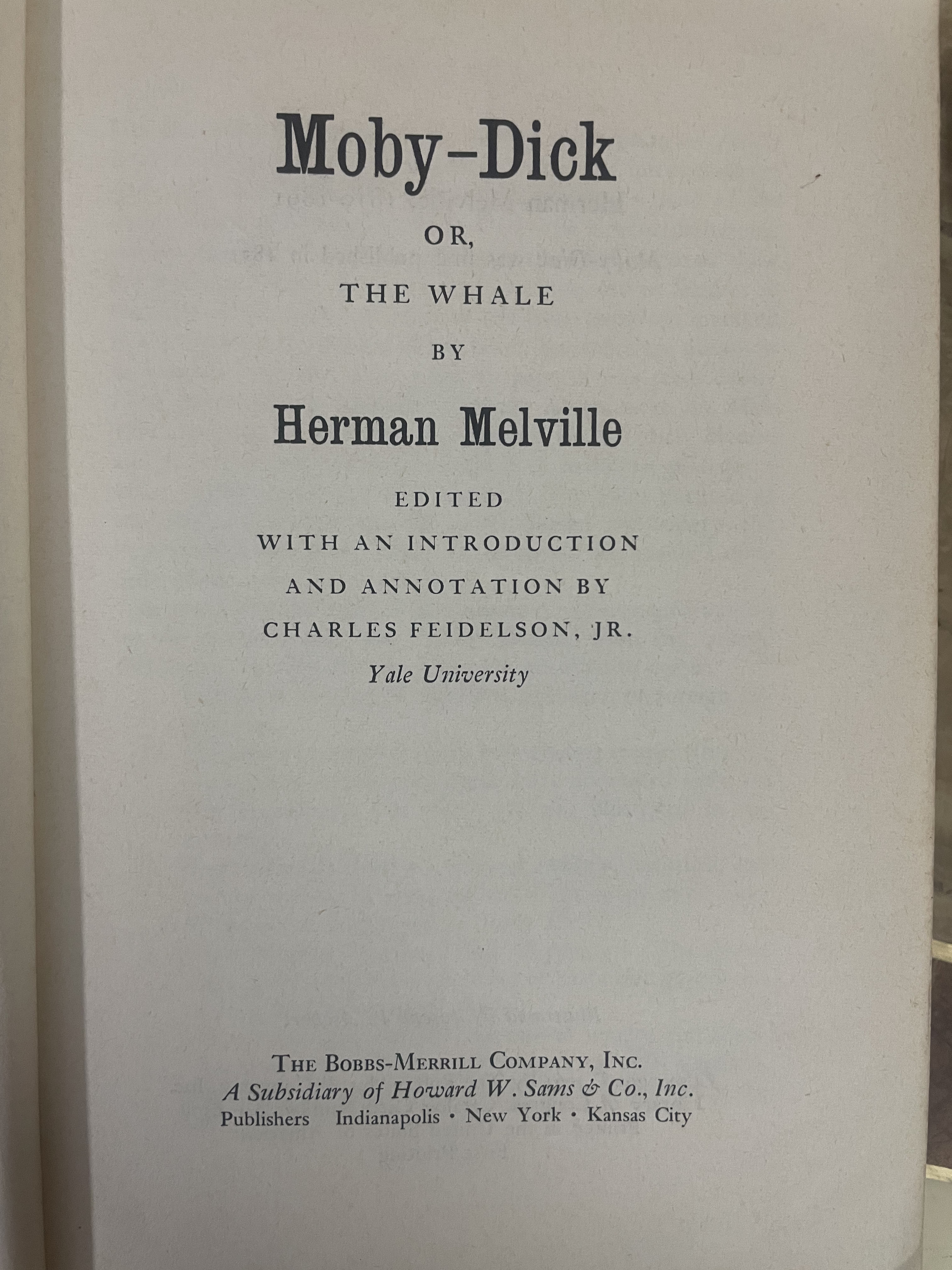Moby Dick or The Whale

About
Summary
Exquisite
TOC
Details
Related
URL
Images
Overview
Moby-Dick; or, The Whale is an epic novel by American writer Herman Melville, published in 1851. The story is narrated by Ishmael, a sailor, who recounts the voyage of the Pequod, a whaling ship. The ship's captain, Ahab, is driven by a monomaniacal desire to seek revenge on Moby Dick, the white sperm whale that bit off his leg. The novel explores themes of good and evil, class and social status, the existence of God, and humanity's search for meaning. Initially, the novel was met with mixed reviews and was a commercial failure. However, it is now widely regarded as Melville's magnum opus and one of the greatest novels in American literatur.
Importance of Book
Literary Influence: The novel has had a lasting impact on literature, influencing countless writers with its complex symbolism, psychological depth, and epic scope.
Philosophical Depth: Moby-Dick delves into philosophical questions about the nature of existence, the limits of knowledge, and the human condition. Its exploration of these themes has made it a subject of scholarly analysis and interpretation for generations.
Historical Representation: The novel provides a valuable historical representation of the 19th-century whaling industry, offering detailed descriptions of the practices, dangers, and social dynamics of the time.
Symbolism: The whale itself is a powerful symbol, and interpretations of its meaning range from the Judeo-Christian God to atheism and everything in between.
Racial Harmony: Ishmael and Queequeg's sensual friendship initiates a kind of racial harmony.
Key Themes
Obsession and Revenge: Ahab's relentless pursuit of Moby Dick exemplifies the destructive nature of obsession and revenge.
Good vs. Evil: Ahab sees Moby Dick as the embodiment of evil.
Man vs. Nature: The struggle between Ahab and Moby Dick symbolizes humanity's ongoing battle with the natural world.
Fate and Free Will: The novel raises questions about fate and free will.
Race and Class: Melville addresses issues of race and class through the diverse crew of the Pequod.
Cultural Significance
Literary Influence: The novel has had a lasting impact on literature.
Philosophical Depth: Moby-Dick delves into philosophical questions about the nature of existence.
Historical Representation: The novel provides a valuable historical representation of the 19th-century whaling industry.
Effects on Society
Initial Reception: Moby-Dick received mixed reviews and was a commercial failure upon its release.
Rediscovery: It was not until the 20th century that Moby-Dick gained widespread recognition as a masterpiece.
Influence on American Identity: Moby-Dick has since become an integral part of the American literary canon.
Conclusion
Moby-Dick; or, The Whale is a complex and multifaceted novel that explores the depths of human obsession, the battle between good and evil, and humanity's place in the natural world. Through the journey of the Pequod and the character of Ahab, Herman Melville crafted a timeless masterpiece that continues to challenge and inspire readers today. Despite its initial failure, the novel has become a cornerstone of American literature, celebrated for its philosophical depth, literary innovation, and enduring cultural significance.
Title
Moby Dick or The Whale
Author
Herman Melville
Name of Publisher
The Bobbs Merrill Company
Publish Date
1964
Subject
A profound and complex novel that explores themes of obsession, revenge, and humanity\'s relationship with nature
Vintage
1948-2000
Category
Literary
Sub Category
Drama
Rarity
Normal
